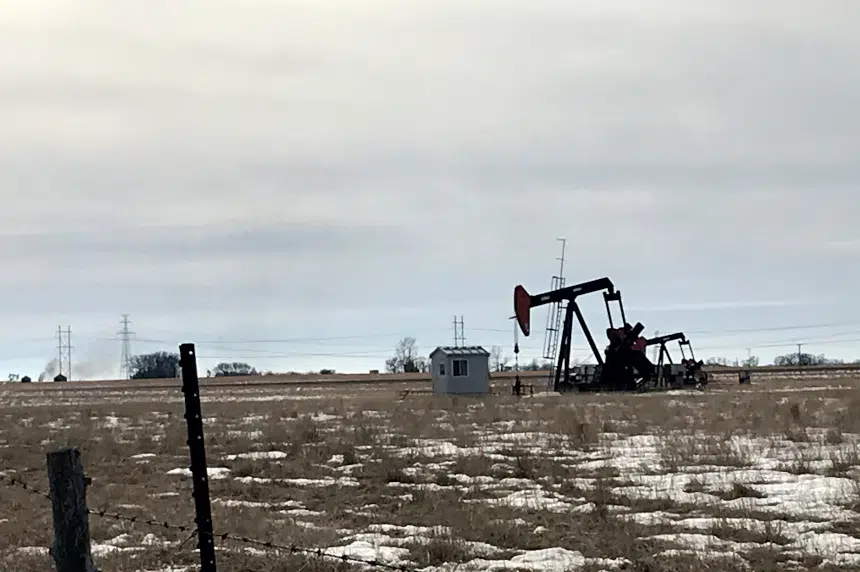Plunging oil prices are familiar territory for the energy sector, and an industry leader in Western Canada said the lessons learned over the past five years have made companies hardy.
“We’re a very resilient sector. We’re used to challenges over the last five years. We’re not in the situation where we were five years ago where we had very high prices and high cost structures. We’ve been on a diet for quite a while,” Brad Herald, vice-president of Western Canada operations for the Canadian Association of Petroleum Producers (CAPP), said Monday.
Herald responded to the news of a 25 per cent drop in oil prices over the weekend at a provincial announcement about responsible well abandonment at the Saskatchewan Legislature.
In response to the global market pressures, Herald said CAPP will be recalculating projected budgets and revenues in order to bring investment in the energy sector to a sustainable level.
Herald explained oil companies have been cutting costs and finding more efficient ways of operating since the last time oil prices took a dramatic hit.
“We’re seeing savings of 25 to 50 per cent when we’re concentrating our programs on an area basis,” Herald said. “So we’re really managing the logistics (and) bringing the costs down. Frankly, that’s what the sector has done over the last half decade across all elements of its life cycle and we are resilient to handle that challenge.”
He said the same resiliency is true for oilfield service companies that have cut operations down in order to survive volatility in global oil prices.
The dramatic dip in oil prices down to just above $30 per barrel comes amid economic uncertainty over fears of the new coronavirus outbreak and a price war between Saudi Arabia and Russia. CAPP is not anticipating this to be a long-term problem, expecting the market to reconcile just as it has in the past.
In the meantime, Herald said CAPP members and oil service companies will need to “batten down the hatches” in the short term but he is confident the companies left operating in Saskatchewan’s oilpatch are resilient enough to weather the storm and wait out low oil prices.
Business analyst discusses market volatility
Oil wasn’t the only loser on the markets Monday, with stocks from all sectors declining.
CJME business analyst Paul Martin says the slumping markets largely stem from the fear caused by coronavirus.
“People are just worried that the coronavirus is going to shut down much of the commerce around the world. When you do that, there will be less demand for energy. Canada’s always had a strong energy sector in the stock market and we’re seeing that today,” Martin said.
Martin said it’s anybody’s guess when markets and oil prices will bottom out.
“No one can make that prediction. It’s not like there’s some kind of strategy here. This is really just a marketplace that is full of people that are disconnected from each other, all trying to make rational decisions for themselves, which ultimately become irrational as a whole,” he said.
The value of the Canadian dollar has fallen as well, which will make it more expensive to import goods like fresh fruits and vegetables.
“Apparently the only winner on the markets these days is Clorox, the folks that make bleach for disinfecting your house,” Martin said.
“Walmart has been a winner. Walmart’s fame has been it’s about low prices and excellent delivery. The market says if people are going to cut back on their expenses, they’re going to be looking to the low-cost supplier and that would be Walmart in a retail sense. They have been a benefactor in all of this.”
— With files from 980 CJME’s Joseph Ho







